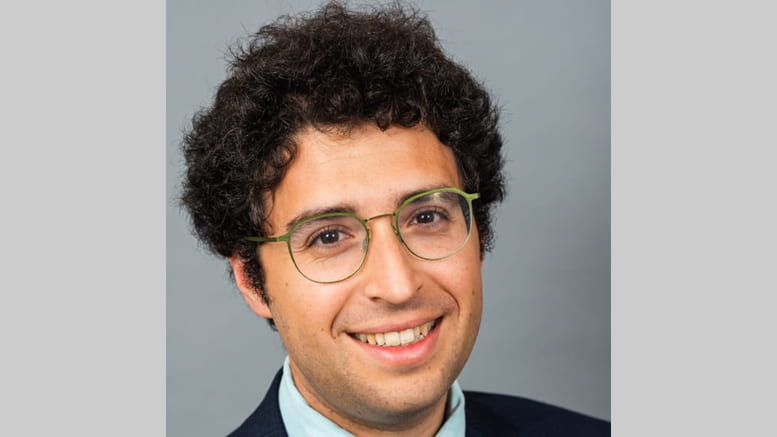Weinberg College welcomes Assistant Professor of Instruction Brian Libgober to the Department of Political Science and Law!
Libgober recently gave some insight into his background in political science, his research, and what life outside of teaching looks like.
Where are you from? Where did you study?
I grew up in Oak Park and went to the University of Chicago for college. After college I worked as a quant for Obama’s reelection campaign and then went to the University of Michigan for law school. I got my PhD in political science (what they call “Government”) at Harvard, and did a post-doc at Yale before I got my first faculty position at the University of California, San Diego.
What inspired you to pursue your area of study?
After my first year of law school, I had a summer job as a law clerk for a federal judge in Washington. During that experience I had the opportunity to write drafts of several judicial opinions, which were published with very light edits. These were not the most significant cases on the court docket, and probably not very hard or close cases, but they were certainly the most significant to the parties who were litigating the case, and close enough for sophisticated parties to keep fighting the issue out in court. A lot of these cases were about alleged governmental over-reach in one way or another. From what I heard around the courthouse from other summer clerks, the judge I worked for was far more hands on with cases and delegated much less to summer law clerks than most. I found it pretty unbelievable that our rarified federal courts, which are supposed to be a bulwark of individual liberty against governmental encroachment, had delegated the meat of opinion writing to people with
effectively a year of legal training. However competitive the job application process was, there’s realistically a pretty severe limit to what even a gifted law student will know. Overall the experience led me to ask a lot of questions about how governmental entities are organized, why, to what effect, and how individuals are treated while trying to navigate bureaucratic systems.
Please describe your research.
Mostly, I work at the intersection of interest group politics and bureaucratic politics, which means that I study how organized groups interact with executive branch officials who implement and enforce the laws. A lot of my work has to do with the quasi-lawmaking processes that occur after the passage of legislation, where the losers in the Congressional lawmaking game often get a second bite at the apple. But I am a bit eclectic in my areas of research and do some work on interest groups and Courts as well as access to justice, by which I mean the ability of individuals to get a lawyer to help them with their legal problems.
What are you working on right now that excites you the most?
I’m increasingly interested in questions about how trade associations work, what effect they have on policymakers, and who they really represent. While writing my dissertation, I spent a lot of time puzzling over questions about whether and why the position of the American Bankers Association on some policy matter was different from the position of say the Oklahoma Bankers Association or Goldman Sachs. And if it’s the same, why are Goldman Sachs and Oklahoma Bankers adding their two, reduplicative cents rather than just letting the main association do its work on their behalf? I didn’t really get to address these kind of question head on in my dissertation, but I’m excited to now get back to it.
How do you enjoy spending your free time?
I have a toddler so I’m tempted to say – what free time? But anyway, I love to cook and to travel, I like science fiction and spy films. I am mediocre at chess and tennis, but I like to play both.

